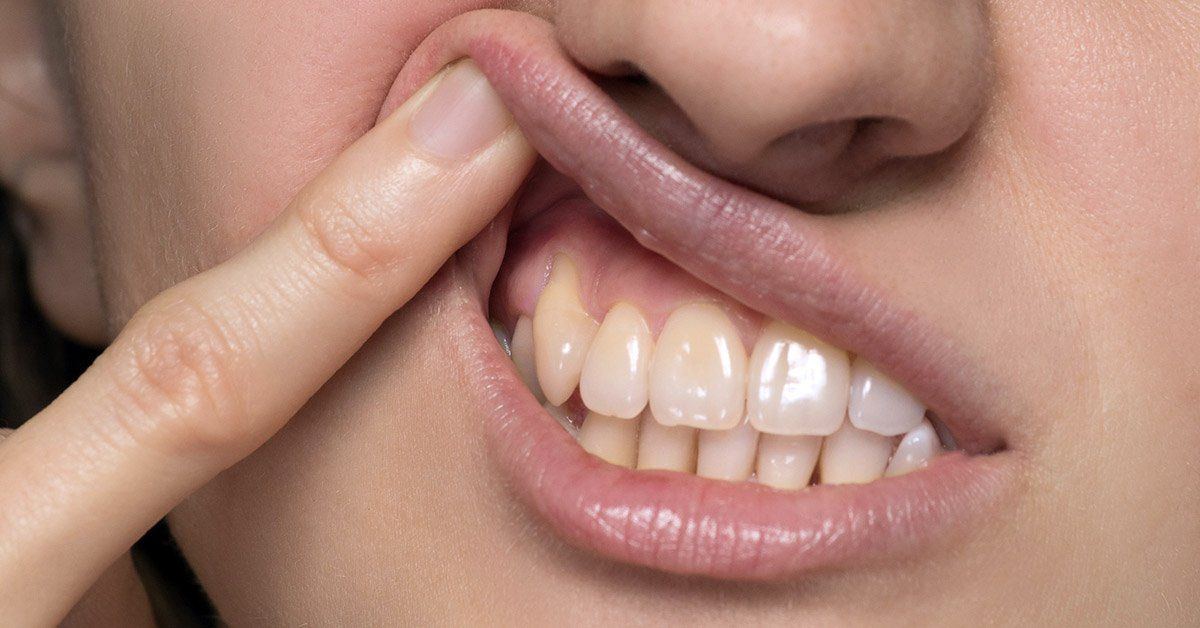5 Important Signs of Advanced Gum Disease that You Shouldn’t Ignore
Advanced gum disease, also known as periodontitis, can be painful and lead to infection elsewhere. Here’s 5 signs that you should see a dentist right away.
It can be painful and inconvenient when you have any kind of oral health problem but advanced gum disease is particularly common. The last thing you want to be dealing with is the symptoms of gum disease on any given day.
The good news is, gum disease is treatable and preventable. So, what are the signs of gum disease and what can you do about it?
What is Gum Disease?
Gum disease is also known as periodontal disease. Advanced gum disease can develop after the initial stages of gingivitis which causes inflamed gums. Periodontal disease can spread to your oral bones and lead to tooth decay and tooth loss.
Many people with advanced gum disease have lost teeth far earlier than they should have because they didn’t seek dental care at the right time. The leading cause of periodontitis is bacteria in the mouth.
When the mouth isn’t properly cleaned on a regular basis, it can lead to plaque forming on the teeth. After a while, this plaque turns to tartar and becomes far harder to remove.
Tartar can lead to gum infections, inflammation and eventually, periodontal disease.
What are the Main Signs of Advanced Gum Disease?
Three of the main signs that can signal advanced gum disease include:
- a bad taste in your mouth
- bad breath
- inflamed gums
You can recognize inflamed gums by their redness. They may also feel tender, swollen and bleed while you brush your teeth or eat.
In addition, two further signs of gum disease include:
- pain when chewing
- sensitive teeth
Your gums may also start to recede away from your teeth. Your teeth may begin to feel loose or start to break away. If you wear dentures, they could start to feel like they don’t fit properly anymore.
What Increases Your Risk of Periodontal Disease?
Your risk of developing gingivitis and advanced gum disease is increased if you are a smoker or have diabetes. High-stress levels can also lead to gum disease, along with any medications that cause a dry mouth.
Oral problems like defective fillings, crooked teeth and poorly fitted bridges can also have an affect on whether you easily develop gum disease.
Genetics and immune system debilitating diseases like AIDS will also dictate how easily you develop gum disease and how quickly you can treat it.
Preventing Gum Disease
Luckily, gum disease is preventable. There are certain measures you can take to make sure you don’t reach a point where gum disease becomes advanced. The most important thing you can do is look after your oral health by brushing and flossing your teeth on a daily basis.
You may also like to floss your teeth and check your mouth after each meal to ensure plaque doesn’t build up throughout the day. It’s also extremely important that you book in with your dentist for regular check-ups. Your dentist will be able to advise on how often you should do that.
Similarly, you should always visit your dentist whenever you identify any of the above warning signs for gum disease. It’s important that your dentist knows if you have any of the risk factors listed above too.
You can also protect yourself from gum disease by living a healthy and balanced lifestyle. For example, did you know that eating an apple can help to brush away plaque and exercising for an hour a day can promote a healthy blood supply to your gums?
Treating Advanced Gum Disease
Once you have developed advanced gum disease, it isn’t as easy to treat as gingivitis. Gingivitis just requires an amendment to how to look after your oral health every day. However, advanced gum disease may need more complex treatment plans.
One of the most common treatments for gum disease is scaling and root planing. This involves scraping plaque and tartar from the teeth and root surfaces. This often requires several visits to your dentist.
You may also be offered a pocket reduction procedure. This is where your gums are no longer close to your teeth and form pockets that can collect bacteria. The procedure reattaches the gum to the bone.
A gum graft might be used if you have exposed roots. Your dentist will take gum tissue from your upper palate and graft it to form a cover which can reduce sensitivity in your mouth.
Many patients are now opting for laser therapy to treat gum disease. It can treat a range of problems, is less invasive than other procedures and you won’t be recovering as long.
If your gum disease is so advanced that your bones have been badly effected, your dentist may need to use a different treatment plan. Regenerative treatments or bone grafts are often used in this instance.
What Should I Do About Advanced Gum Disease?
If you suspect you have advanced gum disease after reading about the symptoms, the first thing you can do is alter your oral health routine. Be sure to brush and floss your teeth twice daily and use mouthwash afterwards.
However, it’s most important to schedule a visit with your dentist to ensure any problems are spotted before they become serious. Prevention is always much easier than treatment when it comes to gum disease, so taking the advice of your dentist is important.
Take a look through our website and get in touch with any questions or to book an appointment.



